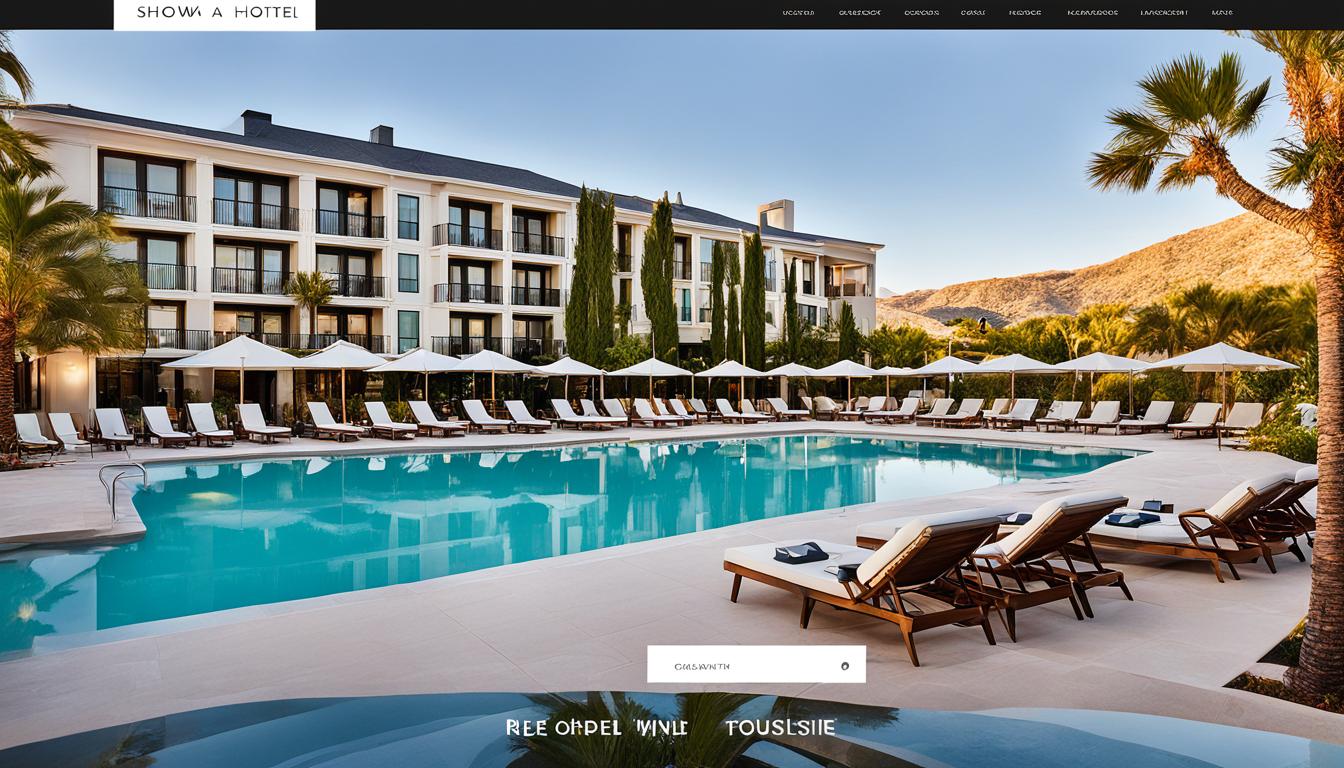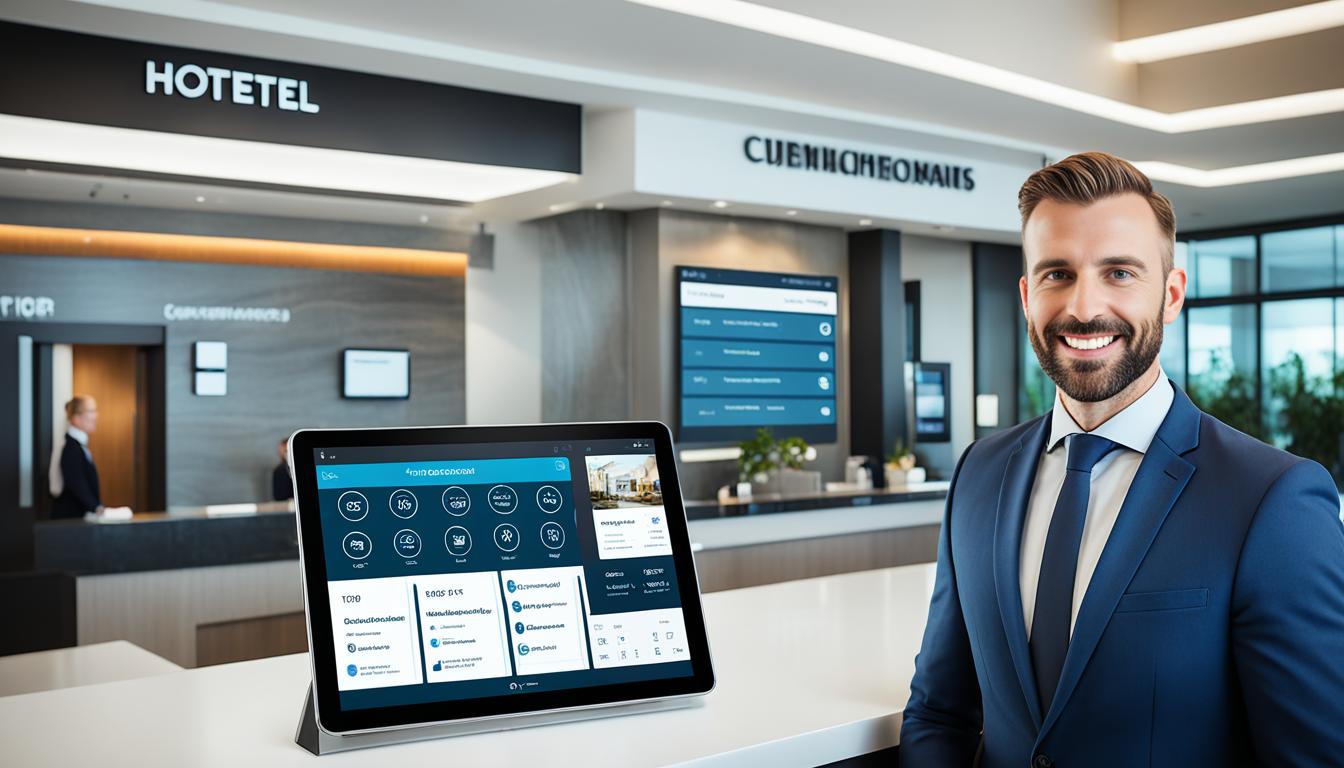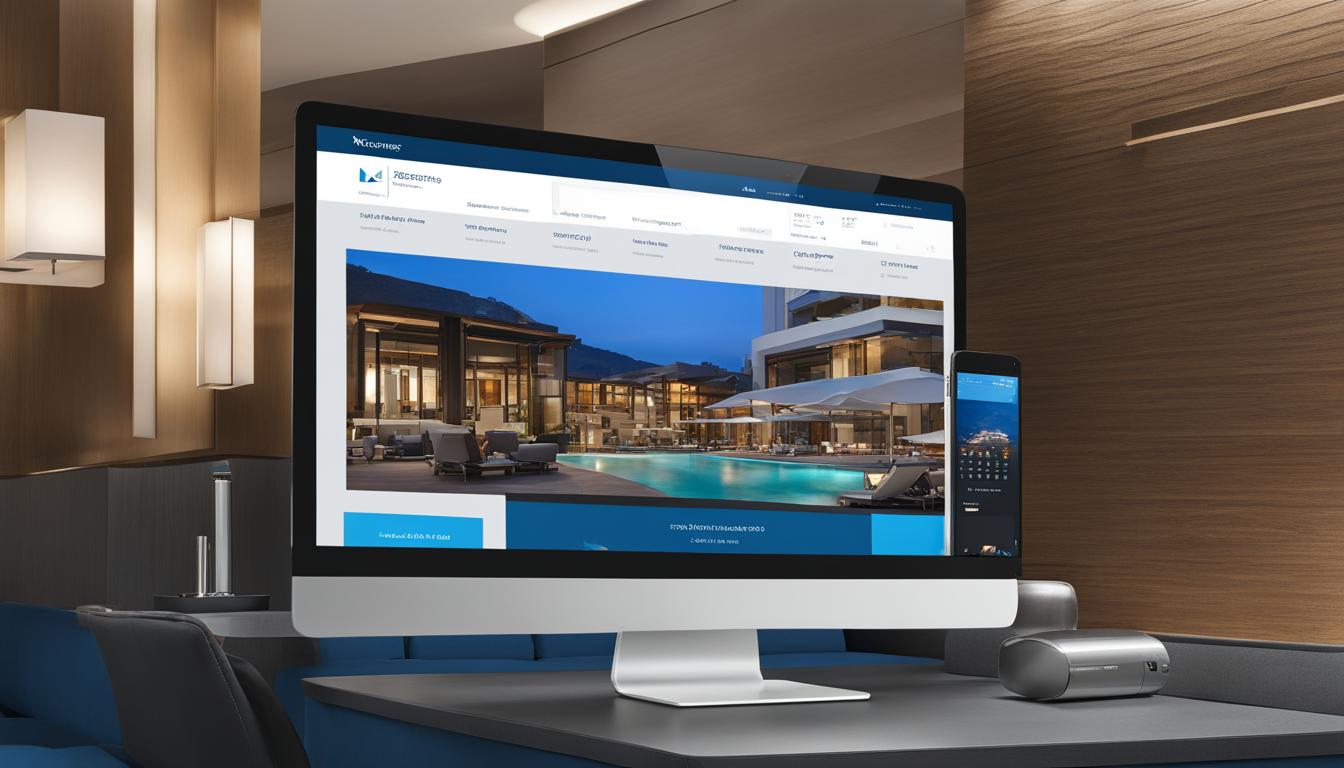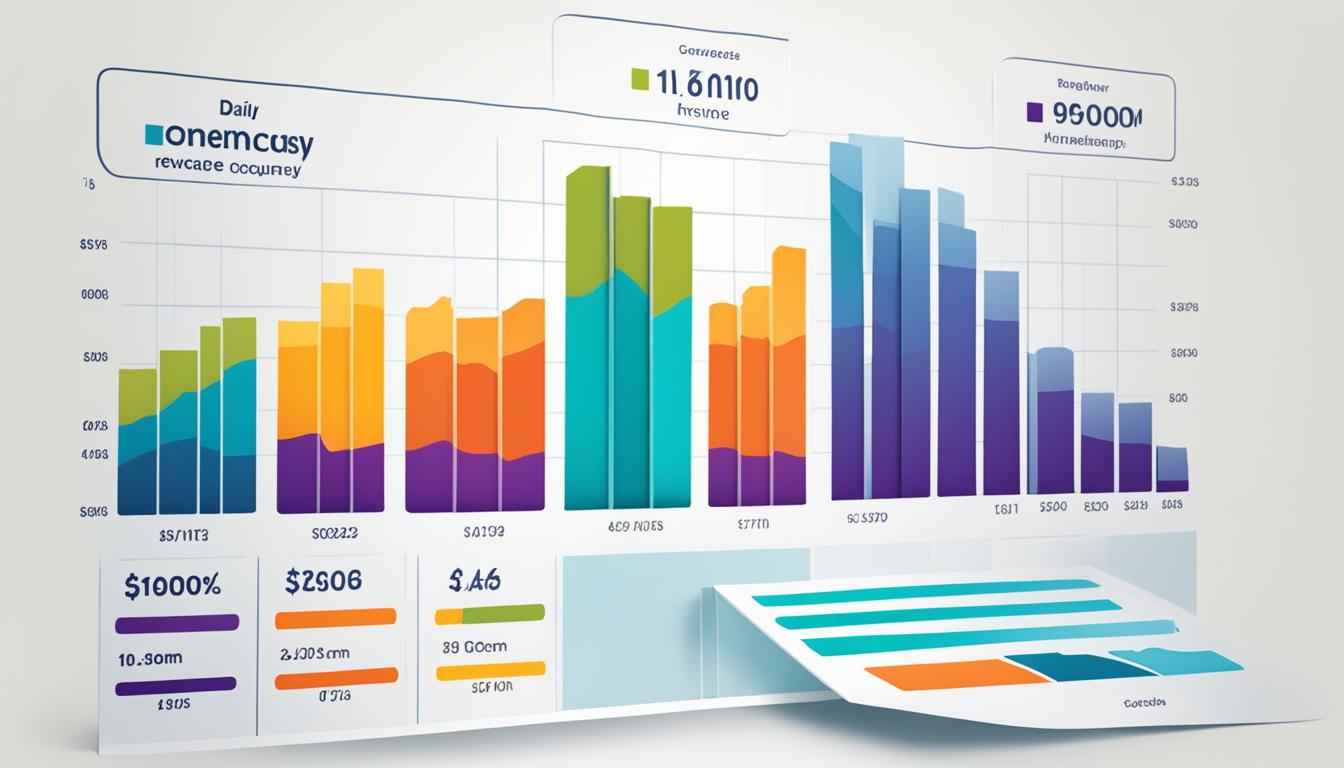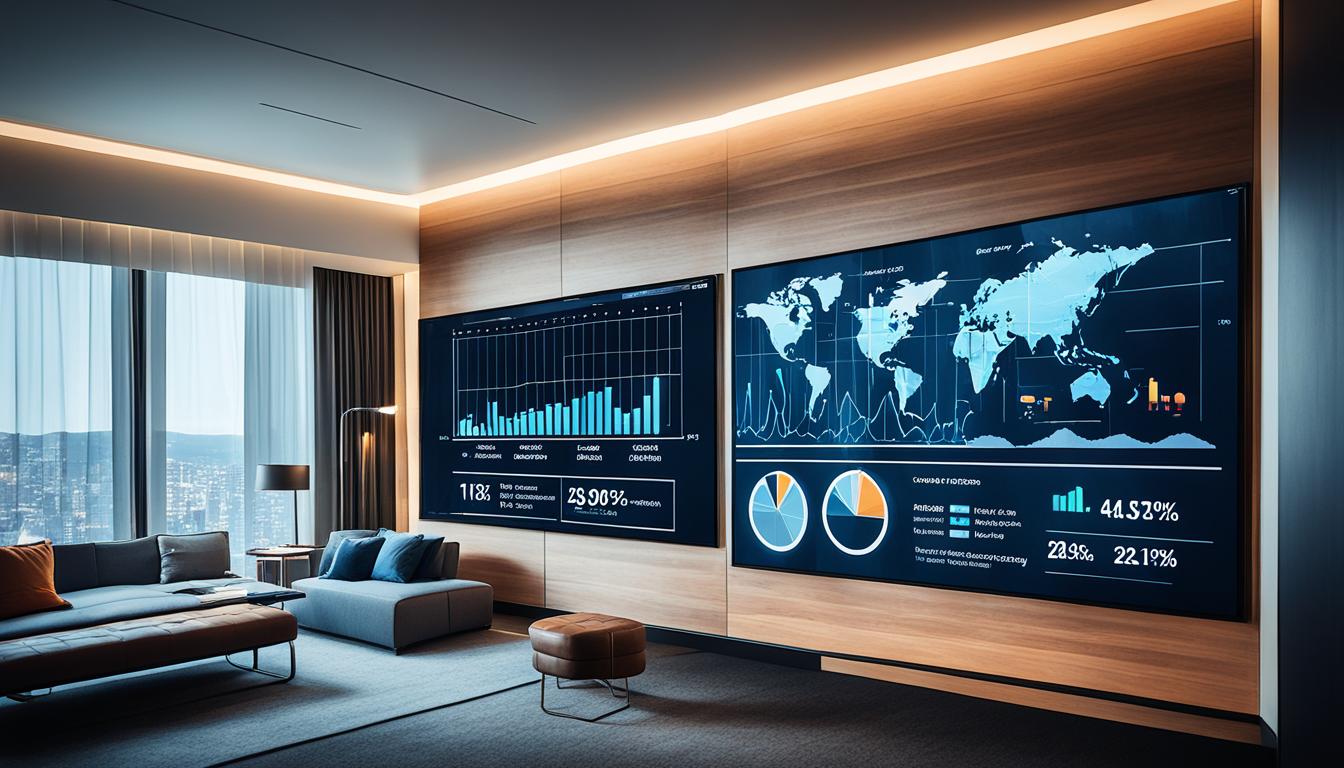Welcome to a world where website design has become an integral part of any successful hotel’s digital presence. In an era where travelers rely heavily on the internet to research and book accommodations, having an attractive and user-friendly website has become more important than ever. To stay ahead in the competitive hospitality industry, hotels must not only keep up with the latest website design trends but also prioritize enhancing the user experience.
With countless options available at their fingertips, users have become increasingly discerning when it comes to choosing their ideal hotel. A well-designed website can play a crucial role in capturing their attention and enticing them to explore further. It is the first impression that matters the most, and a visually appealing and intuitive website can make a lasting impact on potential guests.
But website design is not just about aesthetics; it’s about creating an experience that exceeds expectations. A well-designed hotel website should provide a seamless user journey, allowing visitors to effortlessly navigate through different sections, browse room options, and make reservations. It should reflect the hotel’s brand identity, showcasing its unique features and offerings in a captivating manner.
To achieve these goals, it is essential for hotels to stay updated with the latest website design trends that align with customer expectations and industry best practices. From responsive design and interactive elements to immersive visuals and personalized content, there are various strategies that can be implemented to enhance the user experience and drive conversions.
In the following sections, we will explore the impact of website design on hotels, introduce the benefits of hotel website builder software like PlanetHMS, delve into creating engaging hotel websites, and discuss marketing strategies and SEO optimization techniques for maximum visibility and reach.
So, whether you are a hotel owner, marketer, or industry enthusiast, join us as we uncover the world of website design trends for hotels and discover how they can elevate the user experience, attract more guests, and ultimately contribute to your hotel’s success.
The Impact of Website Design on Hotels
When it comes to hotels, website design plays a crucial role in shaping the overall success of the business. A well-designed website can attract more guests, convey the brand identity effectively, and ultimately drive conversions. In today’s digital age, where the majority of travelers rely on online research and bookings, the first impression a hotel makes through its website can make or break the decision to choose that hotel.
Website design for hotels goes beyond just aesthetics. It encompasses elements such as user experience, functionality, and responsiveness. A visually appealing website with a clean and intuitive layout can create a positive first impression and engage visitors from the moment they land on the site.
Moreover, a well-designed hotel website establishes credibility and trustworthiness. It conveys professionalism and attention to detail, which are crucial factors for guests when choosing a place to stay. By showcasing high-quality images, providing detailed information about the hotel’s amenities, and offering user-friendly navigation, a hotel website can effectively communicate its unique selling points and entice potential guests to make a booking.
One of the key benefits of a well-designed hotel website is the ability to create a seamless booking process. A user-friendly interface, clear calls-to-action, and simplified booking forms can significantly enhance the user experience and streamline the booking process. This can lead to increased conversion rates and higher revenue for the hotel.
In addition to attracting guests and driving conversions, website design also plays a vital role in search engine optimization (SEO) efforts. The structure, layout, and content optimization of a hotel website can improve its visibility on search engine result pages, ultimately leading to higher organic traffic and more exposure to potential guests.
In conclusion, website design is a critical aspect of a hotel’s online presence and overall success. It impacts various aspects of a hotel’s business, from attracting guests and conveying brand identity to driving conversions and improving search engine rankings. By investing in professional website design, hotels can create a compelling online experience that engages visitors and ultimately boosts bookings.
Introduction to Hotel Website Builder Software
When it comes to creating a powerful online presence, hotels need a website that not only showcases their unique offerings but also provides a seamless user experience. This is where hotel website builder software comes into play, offering hotels a comprehensive solution to create, customize, and manage their websites efficiently.
With a dedicated hotel website builder like PlanetHMS’ software, hotels can take full control of their online presence without the need for technical expertise. The software provides a user-friendly interface that allows hoteliers to easily design and update their websites, ensuring they reflect their brand identity while meeting the ever-evolving needs of their guests.
Using a hotel website builder software offers numerous benefits. Firstly, it empowers hotels to create visually appealing websites that captivate their visitors from the moment they arrive. A well-designed website not only leaves a lasting impression but also encourages potential guests to explore further and make reservations.
Secondly, hotel website builder software simplifies the management process, allowing hotels to update their content, add new pages, or modify existing ones with just a few clicks. This ensures that the website always reflects the latest offerings and promotions, keeping potential guests informed and engaged.
Additionally, the hotel website builder software provides responsive design capabilities, ensuring that the website looks and functions seamlessly across different devices, including desktops, tablets, and smartphones. This is essential in today’s mobile-driven world, where guests often browse and make bookings using their mobile devices.
Lastly, hotel website builder software often integrates with other hospitality management systems, such as booking engines and property management systems. This integration streamlines the overall operations and enhances the guest experience by providing a seamless booking process and real-time availability updates.
In summary, hotel website builder software is a valuable tool that empowers hotels to create and manage their websites efficiently. By utilizing a dedicated software solution like PlanetHMS’ hotel website builder, hotels can enhance their online presence, attract more guests, and provide a seamless user experience.
Creating Engaging Hotel Websites with PlanetHMS
PlanetHMS’ hotel website builder is a powerful tool that empowers hotels to create visually appealing and user-friendly websites. With an array of features and functionalities, it allows hotels to captivate and engage visitors, leaving a lasting impression.
One of the key highlights of PlanetHMS’ hotel website builder is its intuitive drag-and-drop interface. This user-friendly interface makes it easy for hoteliers to create custom layouts, effortlessly arranging elements on their websites. From stunning image galleries to interactive menus, hotels can showcase their unique offerings in a visually captivating way.
Additionally, PlanetHMS’ website builder offers a wide range of pre-designed templates that cater specifically to the hospitality industry. These templates are designed with the latest design trends in mind, ensuring that hotels can create modern and aesthetically pleasing websites.
With the goal of enhancing user experience, PlanetHMS’ website builder also emphasizes responsiveness. The websites created with this tool are optimized for various devices, including desktops, tablets, and mobile phones. This ensures that hotel websites maintain their visually engaging and user-friendly experience, regardless of the device being used.
Image of Engaging Hotel Website
In addition to its design capabilities, PlanetHMS’ hotel website builder offers robust functionalities that enhance user engagement. Hotels can integrate features such as online booking systems, live chat support, and multi-language support to streamline the guest experience and encourage direct bookings.
Furthermore, PlanetHMS’ hotel website builder prioritizes search engine optimization (SEO), enabling hotels to improve their organic visibility and attract more potential guests. With built-in SEO tools and optimization features, hotels can easily optimize their website content, meta tags, URLs, and more.
By leveraging the benefits of PlanetHMS’ hotel website builder, hotels can create engaging websites that leave a lasting impression on their visitors. With visually captivating designs, user-friendly interfaces, and powerful functionalities, hotels can showcase their unique offerings and drive conversions.
Hotel Website Marketing Strategies
Effective hotel website marketing is crucial for driving traffic and increasing bookings. By implementing the right strategies, hotels can promote their websites effectively and reach their target audience. Here are some key tactics to consider:
1. Search Engine Optimization (SEO)
Optimizing your hotel website for search engines is essential for improving its visibility and ranking. Conduct keyword research and incorporate relevant keywords throughout your website’s content, meta tags, and headlines. Additionally, focus on creating high-quality, informative content that appeals to your target audience.
2. Pay-Per-Click (PPC) Advertising
PPC advertising allows hotels to display targeted ads on search engines and other platforms, helping them reach potential guests actively searching for accommodation. By carefully selecting keywords, targeting specific demographics, and optimizing ad campaigns, hotels can maximize their advertising budget and drive relevant traffic to their websites.
3. Social Media Marketing
Utilize social media platforms such as Facebook, Instagram, and Twitter to promote your hotel and engage with potential guests. Share captivating visuals, valuable content, and exclusive offers to create a strong online presence. By actively interacting with your followers and responding to their inquiries, you can establish a positive reputation and encourage direct bookings.
4. Email Marketing
Build a database of past guests, potential customers, and website visitors to leverage the power of email marketing. Send personalized newsletters, promotional offers, and relevant updates to engage your audience and encourage return visits. Segment your email list based on demographics, preferences, or past interactions to deliver targeted content that resonates with each recipient.
5. Online Travel Agencies (OTAs)
Partnering with popular online travel agencies like Booking.com, Expedia, and TripAdvisor can significantly increase your hotel’s visibility and reach. Optimize your OTA listings with captivating descriptions, high-quality photos, and competitive rates to attract potential guests. Maintain consistent and up-to-date information across all OTAs to build trust and enhance your online reputation.
By implementing a comprehensive hotel website marketing strategy that combines these tactics, hotels can increase their online visibility, attract more qualified traffic, and ultimately boost their bookings. Stay consistent, monitor performance metrics, and adapt your strategies based on data-driven insights to ensure long-term success.
Optimizing Hotel Websites for SEO
Search engine optimization (SEO) plays a crucial role in ensuring that hotel websites rank high in search engine results and attract organic traffic. By optimizing various elements of a hotel website, you can improve its visibility and increase the likelihood of potential guests finding your property online.
When it comes to hotel website SEO, there are several key elements to consider:
1. Keyword Research
Keywords are the foundation of an effective SEO strategy. Conduct thorough keyword research to identify the most relevant and competitive keywords for your hotel. Incorporate these keywords naturally into your website’s content, meta tags, headings, and URLs.
2. On-Page Optimization
Optimize each page of your hotel website by optimizing the title tags, meta descriptions, heading tags, and image alt text. Ensure that your website’s content is unique, engaging, and relevant to your target audience.
3. Mobile Optimization
With the increasing use of mobile devices, it is vital to optimize your hotel website for mobile users. Implement responsive design techniques to ensure that your website adapts seamlessly to different screen sizes and provides a user-friendly experience across all devices.
4. Site Speed
Website loading speed is a crucial factor in user experience and SEO. Optimize your hotel website’s speed by compressing images, minifying CSS and JavaScript files, and leveraging browser caching. A faster website will not only improve user experience but also positively impact search engine rankings.
Optimizing your hotel website for SEO can significantly boost your online visibility and increase the chances of potential guests discovering your property. By implementing these tips and best practices, you can improve your search engine rankings and drive more organic traffic to your hotel website.
Achieving Seamless User Experience
When it comes to hotel website design, user experience plays a crucial role in attracting and retaining guests. A seamless user experience ensures that visitors can easily navigate the website, find the information they need, and ultimately make a booking.
One important aspect of user experience is intuitive navigation. Hotel websites should have a clear and logical menu structure that allows users to quickly find the desired pages or sections. This helps guests explore the hotel’s offerings, such as rooms, amenities, and dining options, without any confusion or frustration.
A fast-loading website is another key factor in delivering a positive user experience. Slow-loading pages can lead to high bounce rates and deter potential guests from exploring further. Optimizing image sizes, leveraging caching techniques, and utilizing content delivery networks (CDNs) can significantly improve page loading speeds and enhance the overall browsing experience.
Responsive design is an essential element of creating a seamless user experience. With the growing popularity of mobile devices, hotel websites must be optimized for different screen sizes and resolutions. Responsive design ensures that the website adapts and renders properly on smartphones, tablets, and desktop computers, providing a consistent experience across all devices.
Personalized content is another way to enhance user experience on hotel websites. By understanding the preferences and interests of their target audience, hotels can tailor the content and offerings to match individual needs. This can include personalized recommendations, special offers, and targeted messaging that resonate with guests and make them feel valued.
To achieve seamless user experience, it is essential for hotels to prioritize ease of navigation, optimize loading speeds, embrace responsive design, and incorporate personalized content into their websites. By consistently delivering a user-friendly experience, hotels can leave a lasting impression on visitors and increase the likelihood of direct bookings.
Conclusion
Incorporating website design trends is crucial for hotels looking to enhance the user experience and stay competitive in the hospitality industry. A well-designed website is not only visually appealing but also plays a significant role in attracting guests, conveying brand identity, and driving conversions.
By utilizing a dedicated hotel website builder software like PlanetHMS, hotels can create and manage their websites efficiently. PlanetHMS’ hotel website builder offers a range of features and functionalities that enable hotels to develop visually captivating and user-friendly websites, ensuring a seamless experience for their visitors.
However, creating a compelling website is just the first step. Hotel website marketing strategies are essential for driving traffic and increasing bookings. Hotels can employ various techniques and tactics to promote their websites effectively and reach their target audience.
Additionally, optimizing hotel websites for SEO is crucial for achieving better search engine rankings and organic visibility. By implementing key elements of hotel website SEO and following best practices, hotels can improve their online presence and attract more organic traffic.
Ultimately, the success of a hotel’s website design lies in providing a seamless user experience. Intuitive navigation, fast-loading pages, responsive design, and personalized content are all vital factors that contribute to a positive user experience and keep visitors engaged.
For further inquiries or assistance with hotel website builder software, hotel website marketing, or hotel website SEO, please don’t hesitate to contact [email protected]. Enhance your hotel’s online presence and user experience today with PlanetHMS’ comprehensive solutions.

